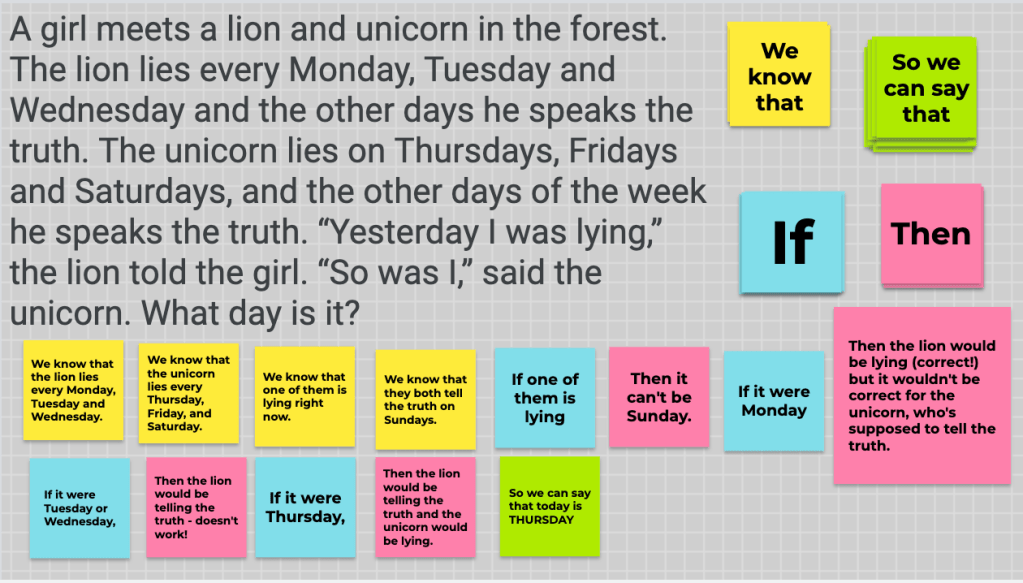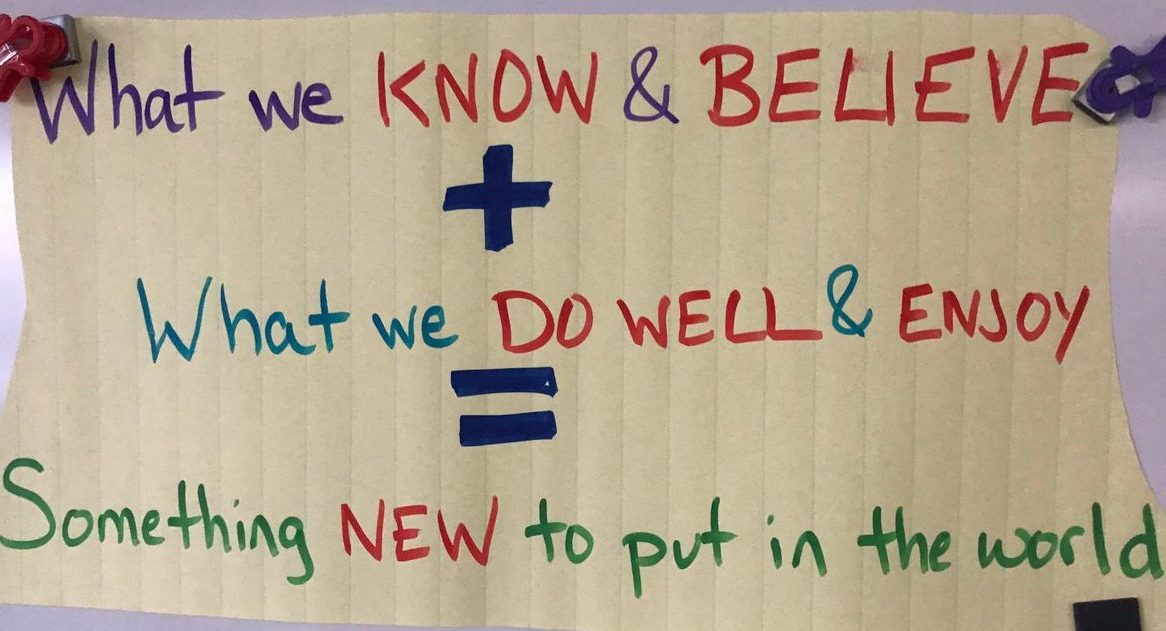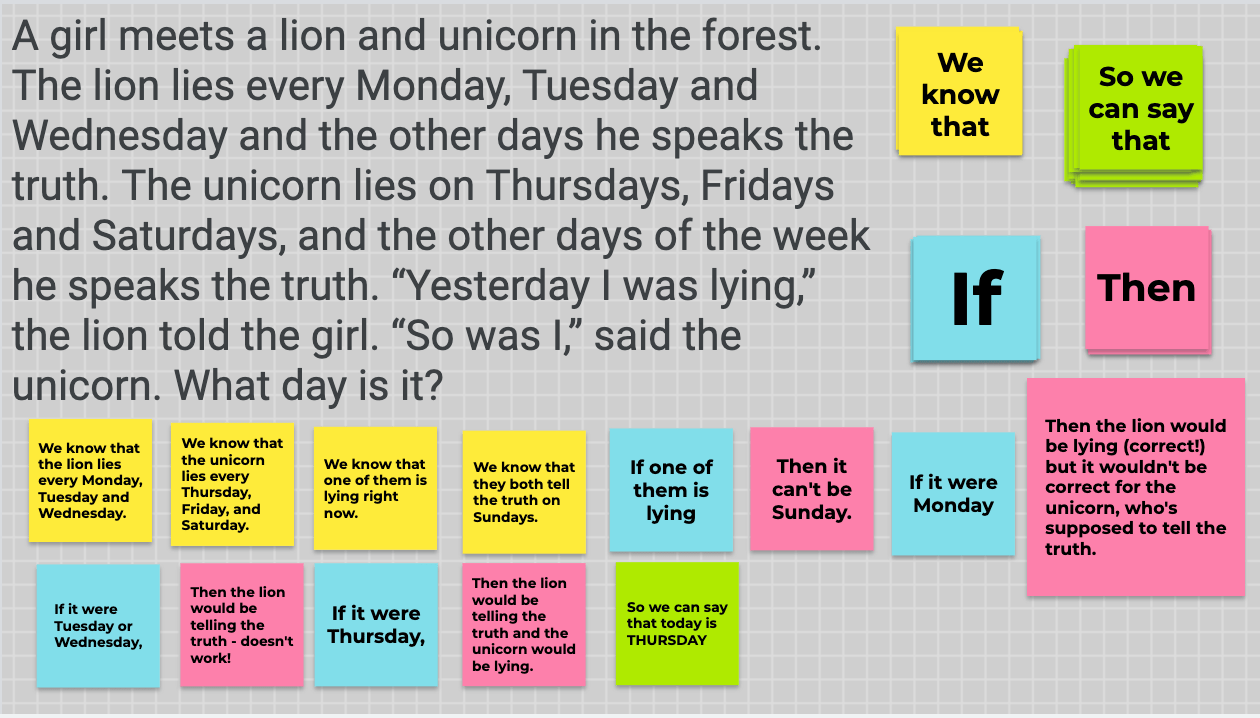I’m not going to lie.
This year, I have had some SPECTACULAR fails in the classroom.
And I mean, not just the oh-man-this-is-tricky-how-am-I-going-to-figure-a-different-way-of-teaching-this-to-the-kids fail. That’s just an ordinary, run-of-the-mill, cost-of-doing-business, everyday type of fail.
No.
I’m talking about the holy-cow-this-lesson-is-crashing-and-burning-and-I-have-absolutely-no-way-of-backing-out-of-this-and-no-way-to-figure-out-in-the-moment-how-to-make-it-better-and-why-did-I-even-bother-getting-out-of-bed-today fail.
I’ve thought a lot about these fails.
They haunt me.
In the moment, failures as I’m teaching feel like I’m failing as a teacher.
The good news is that time offers perspective. And through the perspective of time, I get offered moments of clarity and growth.
You see, all my fails, at least the most spectacular ones, have had one thing in common: they all occurred when I was asking more of my students than they were ready for.
That got me thinking about what I do and why I do it. I was talking with my kids this morning about yet ANOTHER ambitious lesson we were going to try and take on. Here’s what I told them:
“Friends, I’ve been thinking a lot about what we’ve been doing, and I realize sometimes I mess up as a teacher. And when I think about the mistakes I make as a teacher, I kind of have to decide. Do I want to make the mistake of overestimating what you can do, and sometimes ask too much of you? Or do I want to make the mistake of underestimating what you can do, and asking less of you than you might be capable of?”
Down to a person, we all knew the answer to that question.
So yes. I will continue to shoot big, and yes. I will continue to sometimes miss big. But If I didn’t shoot big, Would I ever get reasoning like this?

Would I ever get writing like this?

Would I ever get peer feedback like this?

Fact is, I wouldn’t trade all those difficult moments for the world, if it means growth for me and my kids. And maybe next time, these mistakes will pave the way to a smoother path next time, one that takes them – and my teaching – even further.


I always believe that our students work to our expectations. If we expect less than they are capable of them we are doing them a disservice. By expecting more, even if there are failures, students reasoning kicks in and let’s them see different possibilities for next time. As the saying goes, I learn more from failure than I did from success.
Absolutely! You are right in every direction here. And it’s something that I wholeheartedly believe for gifted kids – but it’s something I believe even MORE strongly that we need to do across ALL areas of readiness.
Oy. There I go soapboxing again. It’s just…so…EASY!
Like Bob said, above, students rise towards a teacher’s expectations. Raising the bar above their heads, but not too far out of reach, will help them to meet their potential.
I loved all of the ways you hypenated to illustrate the kinds of fails you’ve had. (We’ve all had failures this past year!) It made this post feel even more honest.
On a related note, I’d like to share this piece — with your permission — as one of the Be Inspired pieces on the daily calls for slice of life stories for the 14th Annual SOLSC. If that would be okay with you, then please email me by Mon., 2/15 with your consent, and the permalink to this post, at stacey{at}staceyshubitz{dot}com.
THANKS, Lainie.
Wow, yes! Thanks! Your encouragement and response mean the world. Sending you an email.
I am glad that Stacey shared your post. I found the format you used to be a good model for placing emphasis on thoughts. Being a reflective teacher, you share your ups and downs in the classroom for the benefit of your students who need a strong model. Thanks for sharing.
Keep failing, you’re obviously doing it right. 🙂
Thanks for the inspiration, I LOVED your use of punctuation and hyphens (dashes? hyphens? dashes?).
I’ve been playing with punctuation (or lack thereof) in my slicing and wonder often about what my students think when I share my writing and they see that I’m doing it ‘wrong’. Going to ask them tomorrow what they make of it.
Thank you so much for the encouraging words. You know, I’ve thought a lot about all of the conventions that I bend in my own writing, and how I can make that a topic for my students. When we think about it, so many of the authors we know and admire play with language and mechanics to heighten the reader experience. I’m still toying around with how to support kids with learning the balance between convention and craft. I’d love to see what comes of your exploration!
For sure. Something that comes to mind is the impact SMS messaging has had on punctuation – besides the obvious, ending a sentence without a period completely changes its tone.
I love this post. It’s so valuable to think about. I love this line: “In the moment, failures as I’m teaching feel like I’m failing as a teacher.” That’s such an important distinction–and in the moment, I usually forget that there’s a difference. I also love how you reflect on what your failures have in common–that seems like such a valuable way to reflect. Thank you for the inspiration.
Thank you! As teachers, we put so much heart and effort into what we do, it’s HARD to not take things personally. Our lessons are extensions of ourselves. And kids, in their kid-ness, don’t have that same investment. They like what I like. It’s both aggravating and inspirational, all at the same time.